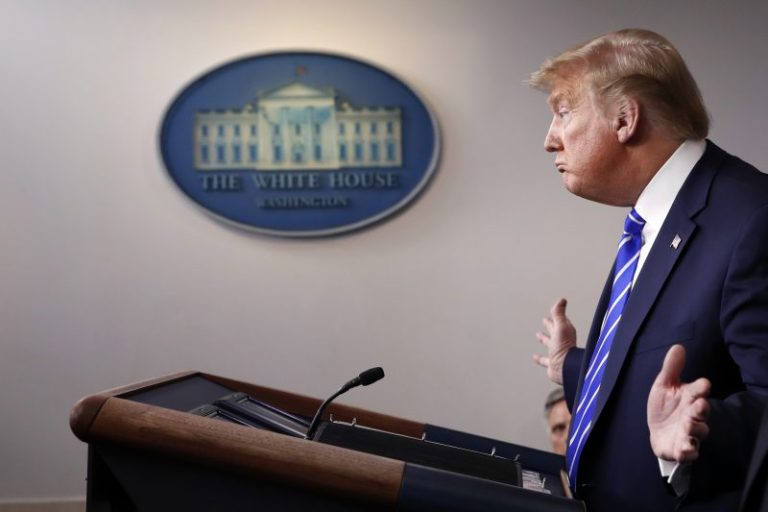I have to admit that at no point in my life — and particularly at no point in the seven-plus years that Donald Trump has been at or near the center of American politics — did it ever occur to me to compare him to Galileo Galilei.
Yet that is precisely the analogy drawn in a new brief by lawyers arguing for Trump and several other plaintiffs in a lawsuit against Twitter. First reported by Politico, the brief compares Trump’s claims about election fraud with the pushback on one of the central advancements in scientific history. Because, why not?
Lest you think I am exaggerating or overstating the point, here is the pertinent excerpt — centered on Galileo’s early-1600s argument that the Earth revolved around the sun and not vice versa.
Let us forgo the pedantry of pointing out that the Catholic Church’s objections to Galileo’s claims may have been more centrally rooted in his rejection of the idea that wine and bread transubstantiated into the literal blood and body of Jesus Christ. Or, at least, let’s just dispatch with that in one sentence.
Let us instead focus on the sheer ridiculousness of comparing conspiracy theories including that “the 2020 election was stolen” with the works of Galileo and Einstein.
The point is precisely that claims about election fraud are rooted in the same sort of mythology and baseless “evidence” that led the Catholic Church to demand that Galileo renounce the idea of heliocentrism. Galileo conducted careful analysis of the evidence and reached a conclusion at odds with the fables and assumptions of state leaders, a group that overlapped with leaders of the church. This was at the dawn of the scientific method, the process of offering and testing hypotheses to construct a concept of the world affixed to demonstrable reality. One reason that Einstein’s work was so hotly contested, of course, was that it challenged the idea that observed reality was necessarily fixed.
What Trump does with his election fraud claims is akin not to Galileo but to the church. He is not conducting a careful consideration of the evidence as he evaluates his theory that the election was stolen; he is operating on faith, on a logic built of allusions and signs. This is not meant to disparage religion by association, certainly. It is, instead, to note that Trump’s attorneys get the situation precisely backward.
In the broadest strokes, this isn’t a new argument. The idea that there is some ineffable process by which public discussion vets and rejects theories and assertions — some process by which claims survive “withering criticism” — is a constant component of defenses of sharing nonsense or hate speech on the internet. What we’ve learned over the past decade is that social media is far more adept at protecting falsehoods than challenging them. Much better at spreading dishonesty than dismantling it. That’s because claims like Trump’s can nestle into a comfortable, safe community of adherents who work collectively to treat it as serious and accurate. Leadership of the Catholic Church in the 17th century was largely impervious to the outside world; on social media, you can build your own similar bastion of belief and organize adherents willing to stand by your side.
Let’s be blunt. Who does Trump more closely resemble: the leader of an upstart religion or a scientist robustly assessing available evidence?
Perhaps the most telling part of the legal filing, though, is how the attorneys describe the effort Twitter undertook to stamp out misinformation on its platform. Twitter, in the business of getting advertisers to view its platform as a good way to reach potential customers, finds it less than useful to have organic communities spreading misinformation to its users. (Any analogue to the 17th century is rough, for obvious reasons. Maybe Twitter is the guy who wants people to run advertisements in his newspaper but realizes people don’t want them appearing next to claims about how werewolves are eating babies’ brains.)
So, before comparing Trump’s assertions to Galileo, the attorneys criticize social media companies for wanting to “suppress opinions and information about matters that Americans consider of vital interest — including those that turn out to be correct or at least debatable.”
See how that works? You can’t censor bad opinions or false statements because they are “debatable” — as is literally everything. And that debate is the only way to avoid the sort of state-level suppression that leads to “dissidents” being “arrested or killed.”
But then we just stop and consider Trump’s specific claims about the election. More than two years later, we can say very clearly and very confidently that they are false. They have been debated to the point of derangement and rejected categorically — not by the Church of Trump, certainly, but by the thousands of Galileos pointing out the obvious relationship between Earth and sun.
Trump’s own claims show that the just-debate-it system presented in the filing doesn’t work to challenge and dismiss false assertions.
I’ve been tracking false claims about election fraud since well before the 2020 election. What has struck me repeatedly is how simple logical tests reveal that there’s nothing of substance to the claims, that the entire idea originates with the idea the election was stolen and then works to find evidence to support it. It’s a teleological argument for the presumed existence of fraud.
Trump is the pontiff of this religion, not the challenger to it.

